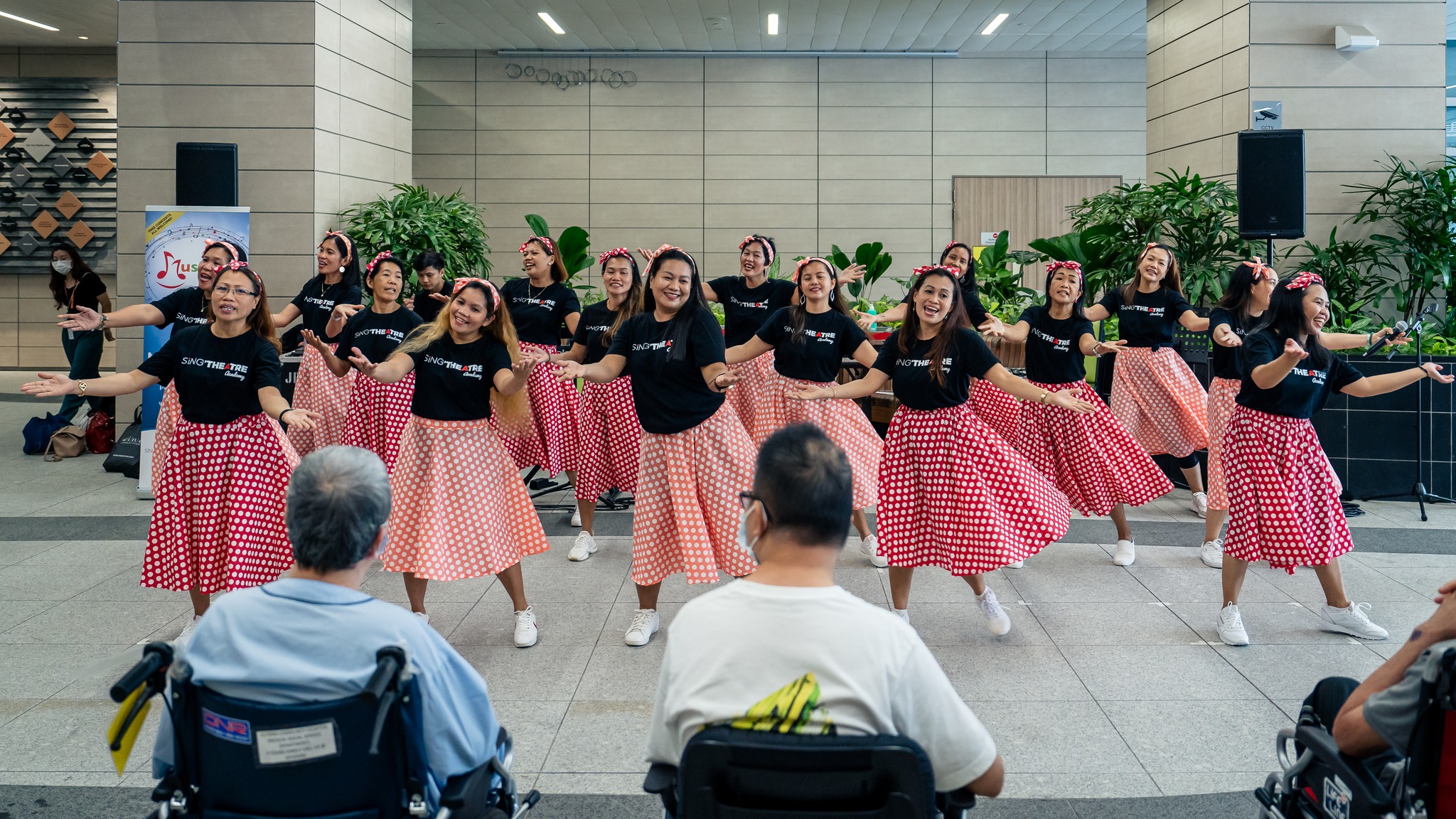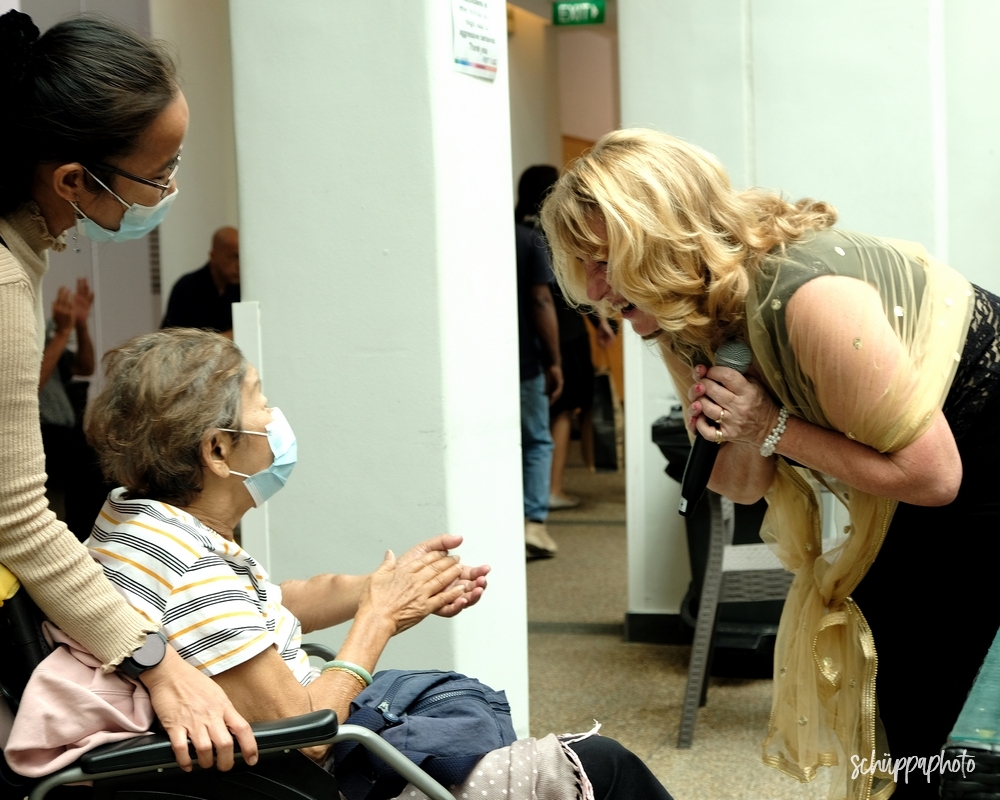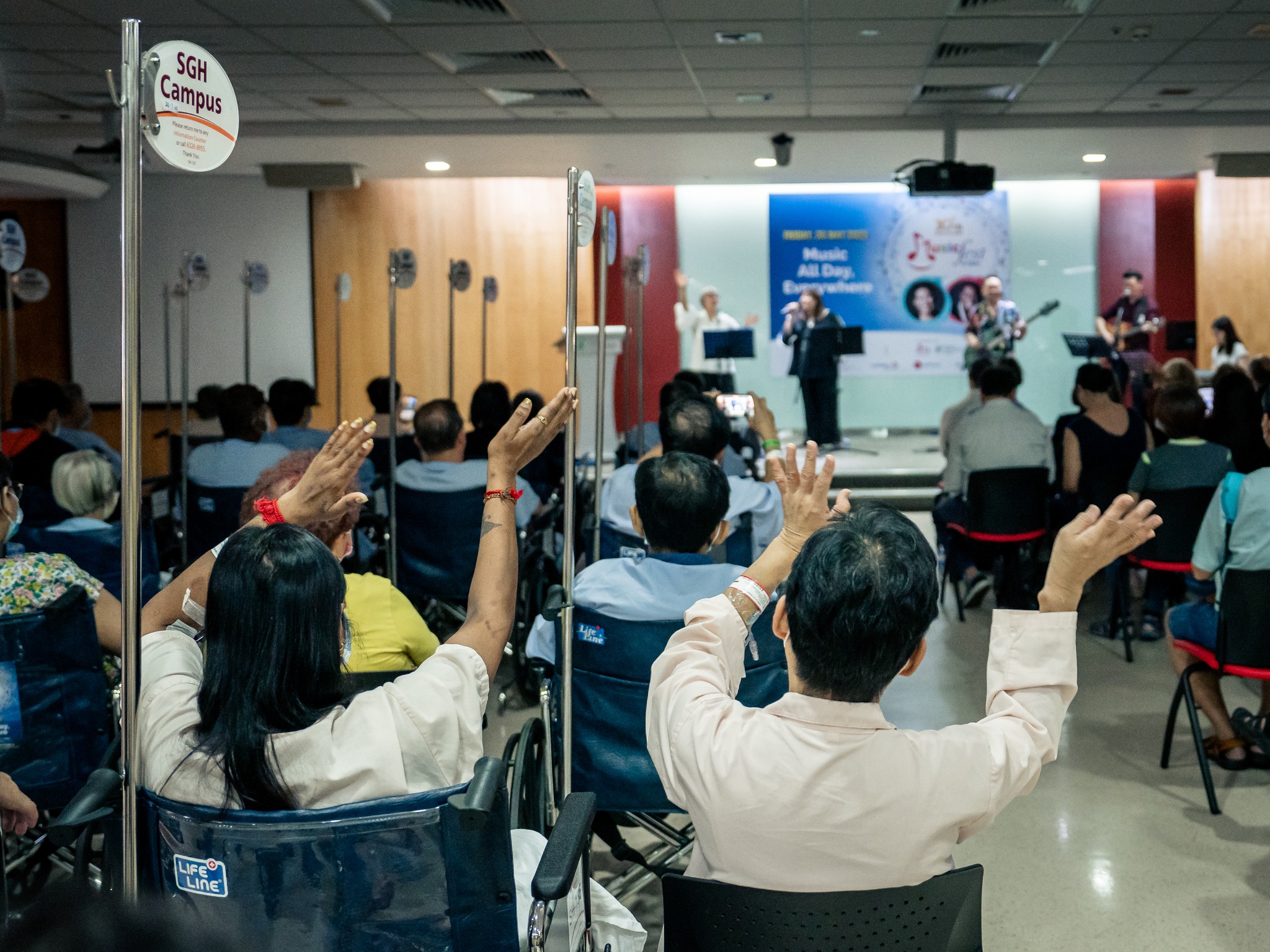When performer Emma Yong passed away from stomach cancer in 2012, it sent many in Singapore’s theatre community reeling. Among them was Nathalie Ribette, founder and Artistic and Executive Director of musical theatre group Sing’theatre—and a friend to Emma.

“I was very, very close to her. She was in all the shows I was staging at the time with Sing’theatre,” Ribette said of the actress-singer, who made her mark on stage, on television, and even in MRT jingles as part of comedy cabaret trio Dim Sum Dollies.
Heartbroken, she searched for a way to process her grief. “One day, I had this vision. If we find an event to pay tribute to her, maybe it would be easier for me to accept (her death) and keep on,” she said.
That was the genesis of MusicFest@SGH. Run by Sing’theatre, this annual programme sees performers and musicians trooping into hospital wards and lobbies at the Singapore General Hospital, equipped with guitars, mics, and other musical implements. It draws inspiration from Fête de la Musique, a day of musical celebration in France where Ribette grew up.
The programme was a huge success among patients, staff, caretakers, and performers alike. Not only that, it managed to attract sponsors, whose generous support allowed Ribette to extend the initiative to other hospitals in Singapore, including KK Women’s and Children’s Hospital and Tan Tock Seng Hospital.
Today, this community outreach programme is known as 365 Hours of Music, and brings live music to more than six healthcare institutions islandwide. It involves over 200 performers, including Ribette herself.
Incredible encounters every year
Performances are never a dull affair. During the most recent edition of MusicFest@SGH in May this year, Ribette sang to a woman who just had her left leg amputated. “She had her mask on, and I took her hand. I could see a big smile—it was a fantastic moment of communication,” she said, adding that she had “incredible encounters every year”.
That sense of connection transcends even linguistic barriers. Back in 2013, Ribette performed a French song for an older Indian woman. Despite not understanding a word, the woman approached her after the performance to say that the song reminded her of honeymooning with her late husband.
“She was so moved, she cried,” recalled Ribette. “I put my hands out and we cried, both of us… I will remember that moment for all my life.”
The emotional demands of the job are part of what makes performing so tough. “Not everyone is able to do this. You need to have enough empathy, but you also need to have an ability (to perform) without being too devastated yourself,” she said.
It is why she makes it a point to pay performers for their craft, even though securing funding is a challenge. Sponsors have dwindled post-pandemic, Ribette admitted, adding that the public can support the programme by donating via Sing’theatre or Giving.sg.
For now, her focus is on maintaining the programme’s reach in hospitals, where it all began. “Something that we were supposed to do just once to help me cope with the loss was so successful,” she said with a touch of wonder.
Did she expect it? No. Will she “fight like a tiger” to keep it going? Yes.
All images are credited to Sing'theatre Ltd.










